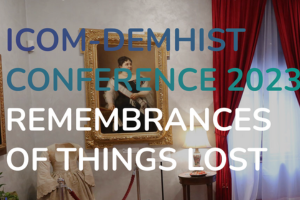Belgrade, 22 – 27 october
Paper submission deadline: 31 May
The focus of this conference is the involvement of the private (family-held) or state (public) sector house museum in restoring and safeguarding the memory that has been lost for a variety of reasons including war, state confiscation, colonialist actions, and more.
We, as museum professionals, have a moral obligation to thoroughly examine and update the narratives. Many examples of these houses can be found in Serbia, some of which will be seen at the conference in Belgrade. All of these houses hold a distinctive layer of the complex story of historic dwellings as a result of the effects of the Second World War in this region of the world.
The main focus of this conference is on how managing difficult heritage and having challenges with heritage protection (risk management due to natural or human-made disasters) can lead to the same concerns of lost memory. These issues need to be addressed not only in the context of European mid-20th century history, but also across the globe, in communities ravaged by colonialist actions such as the Maori of New Zealand, through the Sepik River communities of Papua New Guinea, indigenous communities in South and Central America, sub-Saharan Africa and First Nations of the Americas.
When it comes to keeping the fire of remembrance alive and relevant in the present, what is distinctive to individual historic and traditional homes around the world but also a common factor? What tools are available to maintain the flame of memory? How can historic house museums preserve the history that’s still embued in a house’s walls yet physically lost? Is the physical non-existence of the memory-holder i.e. the object, so important that it can not be replaced by a simple narrative or a copy?
Can the implementation of memory-triggering techniques help us all, wherever in the globe, keep stories alive even after leaving a historic house? What do we choose to remember and what do we decide to forget? One can wonder whether the memory chosen is still relevant to the audience or addresses societal issues. The message of the forgotten, however, may be more crucial for careful examination and may contribute to a community’s healing. This leads to the question of how do you curate the lost and forgotten?
